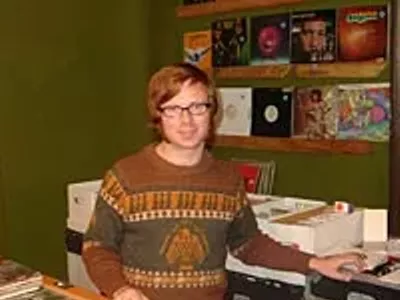
Audio By Carbonatix
[
{
"name": "GPT - Leaderboard - Inline - Content",
"component": "35519556",
"insertPoint": "5th",
"startingPoint": "3",
"requiredCountToDisplay": "3",
"maxInsertions": 100,
"adList": [
{
"adPreset": "LeaderboardInline"
}
]
}
]
This month, Planet Ant Theatre presents a dramatic, entertaining and often very funny collection of four “learning plays” by German playwright Bertolt Brecht. The plays strip away the realistic frills of conventional theater and concentrate on delivering a message. Audiences can expect to be confronted with “the writing on the wall,” which is literally chalked up around the theater in this production, urging, “Change the world; it needs it,” and, “Let nothing be called natural.”
Brecht gained fame with his new vision for theater in the heady and revolutionary Berlin of the ’20s and ’30s. After gaining notoriety with the Threepenny Opera, he set out with his lehrstücke to tear down the imaginary wall that separates active participants from passive spectators. True to his vision, the actors in the Planet Ant production address the audience directly while wearing masks and unrealistic costumes that call attention to the theatrical experience. It’s an attempt to sidestep the demands of realism and provoke a deeper reaction. And when an audience feels on the same level as the players, that magical audience participation can and does take place.
The transparency — the hiding in plain sight of theatrical technique — can be jarring for those unaccustomed to it. Most of the set design could be cobbled together from any well-stocked garage: crates, stepladders, a stool and a few chairs. The arrays of props, costumes and masks off to the side place the “backstage” onstage. The cast does it all, moving scenery, playing music, making sound effects, chalking set decoration on the floor; but it’s done with careful carelessness, distracting the audience with movement, music and unassuming but effective lighting. When one masked actor pounds a spike, an unmasked actor stands nearby tapping out the sound effects. One could say it’s unconventional, but productions of Brecht also create their own conventions and stick to them.
With drama being “synthesized” on the stage through expressionistic technique, one might disregard the acting, but the work makes significant demands of the actors. The cast must be both students of theory and teachers to an audience. They must create drama out of masks and battered furniture. The very tight ensemble generally meets these demands, even if at times, though, this production feels like a vehicle for the tremendously talented Dan Kahn, who plays the music he composed for the show on more than a dozen instruments, sometimes two at a time.
The first and longest play, The Exception and the Rule, concerns a coolie servant being prodded by his master in a race across the desert to win an oil concession. The guileless servant is cajoled, threatened, beaten and finally killed by his suspicious master. Even though the poor servant wasn’t at fault, the master is exonerated in a court of law, because his immoral acts against the servant were legal. Brecht is highlighting the social norms that conspire against the weak and reward the strong. The judge notes that people of low station, automatically suspect in the eyes of the law, are all the more suspect when they’re degraded and mistreated—because the “justice” they’ll seek is against the law.
The program is rounded out with three shorter plays, the first two of which are The Yessayer and The Nosayer, two stories that start the same but end differently. In The Yessayer, the collective “greater good” triumphs. In The Nosayer, the individual conquers the status quo. The pair of playlets seems to pose a question to the audience rather than furnish a ready-made answer. The final play is a comparatively light-hearted skit about “help” and what it can mean to be “helped” by somebody.
Lest some worry that the evening’s didactic content will be grim sloganeering from cheerless people in leotards, just because the plays are called didactic doesn’t mean they’re dry. Right from the opening announcement to the finale, this is often a very funny show. And theatergoers can expect to leave the theater feeling that we can create something new, that the world is in need of change. And perhaps the most welcome change of all is seeing a little bit of blessed relevance in the theater.
Performances run through Nov. 23. Show times: Friday and Saturday night, 8 p.m.; Sunday matinee, 2 p.m. Tickets are $15 for adults, $10 for students with ID. Call Planet Ant for reservations 313-365-4948. After the show on Friday and Saturday nights will be Planet Ant Theatre’s Late Night Series. November 7 and 8 will feature the music of Dan Kahn and special guests. November 14,15, 21, 22 will be the new one-act black comedy “The Kitchen is Small” by July Shavers, directed by John Maxwell. Tickets are $5 for these events. Planet Ant Theatre is located at 2357 Caniff Ave., Hamtramck.
Michael Jackman is a Detroit freelance writer. E-mail letters@metrotimes.com




